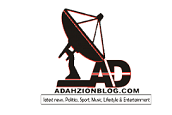Some filling stations in Lagos, Abuja, Niger and other states dispensed Premium Motor Spirit at between N200/litre and N250/litre on Sunday, higher than the government-approved retail price of N165/litre, as queues for the product extended to more states.
According to the reports, the worsening queues for petrol in Lagos and neighbouring states, as well as its prolonged persistence in Abuja and environs, were due to the insufficient supply of products by the Nigerian National Petroleum Company.
NNPC is the sole importer of petrol into Nigeria for several years running. It often claims to have enough products to keep the country wet for months. It, however, stayed mute on Sunday when contacted.
Some filling stations in Lagos sold petrol to motorists at N200/litre and still had queues, as black marketers dispensed the product at N300/litre, according to a source.
In Abuja, Khalif filling station in Kubwa, dispensed the commodity at N250/litre on Sunday but had N165/litre displayed on its pumps. But once a motorist tells the fuel attendant the amount he or she wishes to buy, this would be calculated based on N250/litre.
The queues for petrol in Abuja have never ceased since February this year, but it grew worse in neighbouring states of Nasarawa and Niger on Sunday as motorists search for PMS to move around during the Sallah break.
Oil marketers denied claims of product hoarding or diversion, as they stressed that the insufficient supply of PMS by NNPC and the non-payment of bridging claims for the transportation of petrol were the key reasons for the scarcity.
Billy Gillis-Harry, the President, Petroleum Products Retail Outlets owners Association of Nigeria told our correspondent that filling stations that had products were dispensing, while those that were shut had no petrol to sell.
“The problem is that every side needs to be transparent. We as retail outlet owners are ready to sell petroleum products to the teeming Nigerian public. We have no reason why we should not sell our products.
“The money used in buying the 45,000 litres of petrol from depots, almost N7m, is borrowed, and time-bound. So every retail outlet owner knows that the wise thing to do in this business is to sell out and try to turn around that sale as many times as possible.
“So with this scenario in view, there is no retail outlet owner that is hoarding product or diverting it. Yes, we know there may be bad eggs among the good bunch, but the fact that we are not having sufficient products is what has remained the cause of fuel scarcity,” he said.
“In the case of Abuja, it is clear to understand that if the bridging claims are paid to marketers, they will be able to continue their products’ purchase cycle. That is just the reality. So payment of bridging claims is an issue and insufficient supply is also another issue.
“This is because if there is a product and there is money for us to buy, then why won’t we buy and sell? What else are we in business for? Are we going to buy products and keep them? The answer is no! So this is the reality,” Harry added.
ALSO, READ



[…] Fuel Hits N250/Litre In Abuja And Other Statess […]